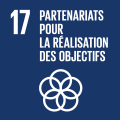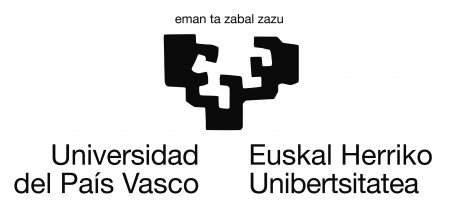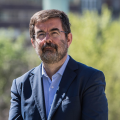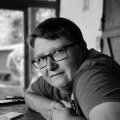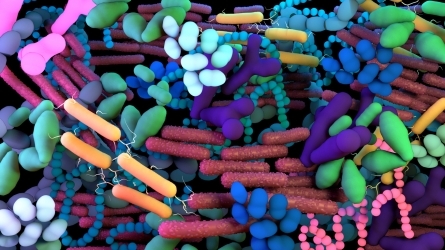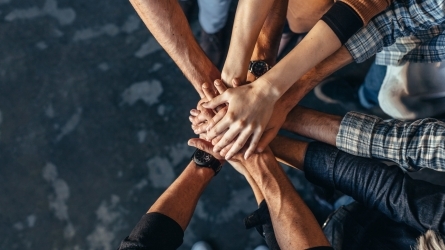
2030 Agenda, a new social contract
Description
The most prosperous societies are the most integrated and cohesive, those that share a social contract of basic principles, values and priorities.
At the current global crossroads, this is an even greater necessity, and the 2030 Agenda is a universal reference for a sustainable and caring world. It is an opportunity to renew our social contract.
In this framework of uncertainties and difficulties, the document of Bases and Legislature Work Plan of the General Secretariat for Social Transition and Agenda 2030 of the Basque Government defines, in terms of its diagnosis, the need to reinforce a culture of social contract; and in terms of its mission, the priority of orienting this social contract towards a commitment to collaboration.
The same diagnosis applies to the Basque Priorities Programme of the 2030 Agenda. The SDGs are an unbeatable opportunity to promote a culture of social contract based on commitments to sustainability and solidarity.
In order to emerge from the current situation in better conditions and with greater cohesion, it is essential to reinforce the culture of social contract in the Basque Country and to make its consensus more solid and broad. In this perspective, the 2030 Agenda becomes a universal reference for sharing a sustainable world.
The 2030 Agenda can be the basis and the core of the renewal of our social contract.
Objectives
Identify consensus for a new social contract based on the 2030 Agenda.
Identify consensus for a new social contract based on the 2030 Agenda.
Explore opportunities to renew our social contract based on the 2030 Agenda.
Reflect on the challenges and opportunities that the 2030 Agenda represents from multi-level and multi-actor governance.
Contrast and prospection of principles and values necessary to reinforce the culture of social contract.
Contribute to the strengthening and greater assumption of a leading role in favour of the 2030 Agenda in the Basque Country from the different agents.
Activity directed to
- University student
- Students not from university
- Teachers
- Professionals
- All public
Methodology
This training initiative seeks to create a favourable climate for the acquisition of knowledge and the transmission of concrete cases and experiences for the renewal of our social contract based on the 2030 Agenda.
The communication and exchange of reflections will be established through conferences, round tables or sessions that seek to favour the expression of their strategies and experiences, as well as the identification of opportunities that the 2030 Agenda represents from multilevel and multi-agent governance.
The speakers will come from relevant companies and organisations in the field.
In the different formats mentioned above, there will be documentation that will be handed out to attendees, in addition to graphic support (presentations and videos).
During the two days of the initiative, priority will be given to the specification and clarification of the subject matter, interaction and debate among the participants, thanks to the presentation of the experiences developed or currently being developed in the Basque Country.
Program
12-07-2022
Registro
Presentation by the Director of the activity
Presentación del programa
- Asier Aranbarri Urzelai | Gobierno Vasco / Eusko Jaurlaritza - Secretaría General de Transición Social y Agenda 2030
- Estíbaliz Sáez de Cámara Oleaga | UPV/EHU - Directora de Sostenibilidad de la UPV/EHU. Red Española para el Desarrollo Sostenible
Institutional Opening session. Speaking order:
- Jonan Fernandez Erdozia | Gobierno Vasco / Eusko Jaurlaritza - Secretario General de Transición Social y Agenda 2030
- Itziar Alkorta Idiakez | Directora de los Cursos de Verano de la UPV-EHU
“Democracia y Contrato Social Post-Pandemia“
- Miguel Poiares Maduro | Decano de la Escuela Global de Derecho de la Universidad Católica Portuguesa y ex Director de la Escuela de Gobernanza Transnacional. Ex Ministro Adjunto del Primer Ministro y Ex Ministro de Desarrollo Regional de Portugal, Ex Abogado General del Tribunal
“Modera“
- Eduardo Iribarren Eleizegi | Grupo Noticias
Pausa-café
Round table: “Cómo hacer de la Agenda 2030 un nuevo contrato social: una mirada desde las instituciones: el Foro Multiagente de Transición social y Agenda 2030“
- Eduardo Iribarren Eleizegi | Grupo Noticias (Moderator)
Modera
- Eduardo Iribarren Eleizegi | Grupo Noticias
- Jose Luis Cimiano | Diputación Foral de Araba - Director de proyectos
- Maitane Leizaola Zulueta | Diputación Foral de Bizkaia - Directora general de coordinación del gabinete
- Sebastian Zurutuza Mujika | Diputación Foral de Gipuzkoa - Director de proyectos
- Koldobike Olabide Huelga | Alcaldesa de Legazpi y miembro de la Comisión Ejecutiva de EUDEL
- Jone Berriozabal Bóveda | Gobierno vasco / Eusko Jaurlaritza - Viceconsejera de relaciones institucionales del Departamento de Gobernanza y Autogobierno del
13-07-2022
“Cómo hacer de la Agenda 2030 un nuevo contrato social: conversaciones desde diferentes prismas. “
Modera
- Aran Acha
“Aportaciones/oportunidades al/del contrato social Agenda 2030 desde/para la Agenda Urbana de Euskadi Carmen Sánchez, ONU Hábitat.“
- Roberto San Salvador del Valle Doistua | Deusto Cities Lab
- Carmen Sánchez | ONU Hábitat
“Aportaciones/oportunidades al/del contrato social Agenda 2030 desde/para la Transformación Social “
- Isabel Octavio Uranga | EITB
- Joseba Zalakain | SIIS
Pausa-café
“Aportaciones/oportunidades al/del contrato social Agenda 2030 desde/para la Transformación Energético-climática “
- Alex Boto Bastegieta | IHOBE
- María José Sanz Sánchez | BC3
“Aportaciones/oportunidades al/del contrato social Agenda 2030 desde/para la Transformación económico-digital“
- Tomás Iriondo Astigarraga | GAIA
- Leire San José | UPV-EHU
“Conclusiones“
- Iñigo Arbiol Oñate | Deusto
Institutional Closing session
Conclusiones
- Jonan Fernandez Erdozia | Gobierno Vasco / Eusko Jaurlaritza - Secretario General de Transición Social y Agenda 2030
- Iñigo Urkullu Renteria | Gobierno Vasco / Eusko Jaurlaritza - Lehendakaria
Directors

Asier Aranbarri Urzelai
Eusko Jaurlaritza

Estíbaliz Sáez de Cámara Oleaga
Universidad del Pais Vasco/Euskal Herriko Unibertsitatea (UPV/EHU)
PhD in Environmental Engineering and professor in the ‘Environmental Technologies’ area in the Department of Chemical Engineering of the Environment at the School of Engineering in Bilbao. Since 2017 she is the Director of Sustainability and Social Commitment at the UPV / EHU. She is in charge of promoting and planning, along with the Vice-Rectorrate of Scientific and Social Development and Knowledge Transfer. She is a member of the Academic Committee of the Master Circular Economy: Business Aplication. Furthermore, she is the vicepresident of the Spanish Network for Sustainable Development (REDS).
Speakers

Aran Acha

Asier Aranbarri Urzelai
Eusko Jaurlaritza

Iñigo Arbiol Oñate
Universidad de Deusto
Doctor from the University of Deusto, he began his professional life at UNHCR Bosnia Herzegovina, the Gernika Gogoratuz Peace Research Center and the UNESCO Regional Office for Latin America and the Caribbean in Havana. Since he joined the University of Deusto in 2009, he has developed his teaching and scientific production in the field of International Relations. He has led and participated in numerous research projects with local, national and international entities and has been a visiting professor at Boston College, Saint Joseph University in Beirut, Harvard Complutense Institute, George Washington University and Columbia University in New York. He was coordinator of the double Degree in International Relations and Law and director of the "Master in International Relations and Business Diplomacy". He is an expert consultant in localization processes of the 2030 Agenda, sub-state diplomacy and international participation of sub-state governments. He is currently an external advisor for the launch in Bilbao of the Secretariat of the United Nations Local2030 Coalition.

Jone Berriozabal Bóveda
eusko jaurlaritza

Alex Boto Bastegieta

Jose Luis Cimiano

Eduardo Iribarren Eleizegi
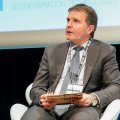
Tomás Iriondo Astigarraga
Experiencia laboral en torno a la Innovación Colaborativa en agrupaciones empresariales, promotor de Alianzas Interempresariales y activista de la Transformación Digital de las organizaciones como instrumento de apoyo al desarrollo de las personas. Más de 30 años como Cluster Manager en GAIA-ASOCIACION DE INDUSTRIAS DE CONOCIMIENTO Y TECNOLOGÍA APLICADA. EUSKADI Perfil académico: Licenciado en Informática/ Ingeniero de Software (UPV/EHU), Master en Marketing y Dirección de Empresas - MBA (Universidad de Deusto), y Doctor en Innovación Colaborativa (Universidad de Mondragon). Autor de la Tesis Doctoral: Model Cluster Excellence Colaborador de administraciones públicas en grupos de reflexión (Industria Inteligente, Industria Creativa, Entornos 4.0), ponentes en Universidades y Centros de Formación Profesional, en cursos de especialización, postgrado y Doctorando Director General de GAIA PORTUETXE BIDEA, 14 EDIFICIO IBAETA 1º 20018 – SAN SEBASTIAN

Maitane Leizaola Zulueta

Isabel Octavio Uranga
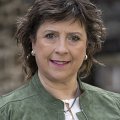
Koldobike Olabide Huelga
GIPUZKOAKO FORU ALDUNDIA, Legazpiko Alkatea / Alcaldesa de Legazpi
Licenciada en Químicas. Alcaldesa de Legazpi desde 2015. Vocal de la Comisión Ejecutiva de Eudel desde 2019

Miguel Poiares Maduro

Estíbaliz Sáez de Cámara Oleaga
Universidad del Pais Vasco/Euskal Herriko Unibertsitatea (UPV/EHU)
PhD in Environmental Engineering and professor in the ‘Environmental Technologies’ area in the Department of Chemical Engineering of the Environment at the School of Engineering in Bilbao. Since 2017 she is the Director of Sustainability and Social Commitment at the UPV / EHU. She is in charge of promoting and planning, along with the Vice-Rectorrate of Scientific and Social Development and Knowledge Transfer. She is a member of the Academic Committee of the Master Circular Economy: Business Aplication. Furthermore, she is the vicepresident of the Spanish Network for Sustainable Development (REDS).
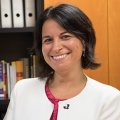
Leire San José
UPV/EHU
Leire San-Jose is Full Professor at University of the Basque Country (UPV/EHU) in Bilbao (Spain), and she is also Visiting Research Fellow at Huddersfield Business School (United Kingdom). She is leader of ECRI Ethics in Finance & Social Value Research group. She was previously a Visiting Scholar at Loyola University Chicago under the supervision of Professor John Boatright and at Darden Business School under the supervision of Professor Edward Freeman. Her most important publications are about cash management, social value and stakeholder theory.
ROBERTO SAN SALVADOR DEL VALLE DOISTUA Academic Training • PhD in Philosophy and Educational Sciences. • MA in Leisure Studies (Leeds University-University of Deusto). • BA in History and Geography. • Diploma in Archeology. Professional and Teaching Career • Professor of the School of Social and Human Sciences. • Director of Deusto Cities Lab Chair. University of Deusto. • Member of the ¬¬¬¬¬¬¬¬¬¬¬¬¬¬¬¬¬¬Leisure and Human Development Research Team (an official recognized research team by Basque Government) • Former Director of the Institute of Leisure Studies (2000-2007). • Former Vice-Rector for Communication, Multilingualism and Social Innovation (2007-2015). Last publications and research projects • Last book: (2018) Creative Cities. Mapping creativity driven cities. Bilbao: ISBN: 978-84-16982-58-5. • Last paper: (2020). “Cultura, creatividad y gobernanza internacional. La Nueva Agenda Urbana”. Bitácora Urbano Territorial, 30 (1): 39-49. https://doi.org/10.15446/bitac
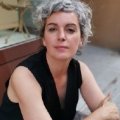
Carmen Sánchez
Head of UN-Habitat Office in Spain. Carmen is a specialist in Development, with work areas oriented to democratic governance and sustainable cities. She has a degree in Economics from the University of Salamanca, in Spain, a Master’s Degree in Political Science from FLACSO in Ecuador and is Gender Studies Graduate from the University Rafael Landivar in Guatemala. She has over twenty years of experience in the fields of Development and International Cooperation, of which ten have been dedicated to programmes management in Latin America. She has worked in multilateral organizations such as the United Nations Development Programme (UNDP), bilateral cooperation agencies such as the Spanish Agency of International Cooperation for Development(AECID), private foundations such as the Club of Madrid, and various international consulting institutions. She currently works for the United Nations Human Settlements Program (UN-HABITAT) as Head of the UN Habitat Office in Spain. SHORT
Ikerbasque Professor and Scientific Director of the Basque Centre for Climate Change (2016-). She graduated at University of Valencia and post-doct in the Arizona State University. She has worked on research and research-policy at national and international level. She has also worked at Mediterranean Center for Environmental Studies (CEAM) until 2007. She was Senior Officer positions at the secretariat of the UNFCCC supporting climate change negotiations (2007-2011), and at FAO as Program Coordinator of the UNREDD Programme (2012-2015). She held the High Distinction for Scientific Merit of the Generalitat Valenciana (2019). Dr. Sanz has worked extensively on air pollution and climate change and environment issues for 30 years. She has published over 150 scientific papers, among other in Nature, Nature Climate Change and PNAS, and is recognized as an expert in land use and climate change issues. She has been an advisor to and collaborated with many national and international organizations (World Bank, UNDP, UNEP, UNFCCC secretariat, Meridian Institute, the European Commission, the Green Climate Fund and the governments of Spain), and several of its regional governments, Japan, US, and several developing country governments.
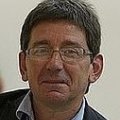
Joseba Zalakain
SIIS Servicio de Información e Investigación Social
Licenciado en Ciencias de la Información por la Universidad del País Vasco (1991), tiene un Diploma de Estudios Avanzados (DEA) en Trabajo Social por la UPNA (2004). Trabaja en el SIIS Servicio de Información e Investigación Social de la Fundación Eguia Careaga desde el año 1996 y es director de ese centro desde el año 2007. Dentro del SIIS, ha participado en diferentes estudios e investigaciones sobre pobreza y exclusión social, dependencia, envejecimiento, discapacidad y drogodependencias. En esos ámbitos, ha dirigido la realización de diversos estudios, tales como Activación y derecho a la inclusión en el sistema de garantía de ingresos en Euskadi, La pobreza infantil en Euskadi, la serie de encuestas sobre Pobreza y Exclusión Social en Gipuzkoa o los estudios sobre la situación de las personas en situación de exclusión residencial en la CAPV. Ha coordinado también los diferentes informes del Consejo Vasco de Servicios Sociales sobre la situación de los servicios sociales.
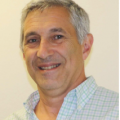
Sebastian Zurutuza Mujika
Gipuzkoako Foru Aldundia/Diputación Foral de Guipúzcoa
Cargo: Director general de Estrategia (2015-actualidad). Estudios: Licenciado en Ciencias Económicas y Empresariales (Especialista Universitario en Administración Pública de la UPV/EHU). Idiomas: euskera (alto); castellano (alto); inglés (medio). Trayectoria profesional y política: • Jefe de Servicio de Compromisos Institucionales. Diputación Foral de Gipuzkoa (1993-2015). • Jefe de Sección de Cupo y Aportaciones Financieras. Diputación Foral de Gipuzkoa (1992-1993). • Profesor Asociado. UPV/EHU (Facultad de Derecho) (1988-1994). • Economista. Diputación Foral de Gipuzkoa (1987-1992). • Profesor. Formación Profesional (Elgoibar y Usurbil) (1982-1987).
Registration fees
| Face-to-face | Until 12-07-2022 |
|---|---|
| 0 EUR |
| Live online | Until 12-07-2022 |
|---|---|
| 0 EUR |
Venue
Miramar Palace
Pº de Miraconcha nº 48. Donostia / San Sebastián
Gipuzkoa
Miramar Palace
Pº de Miraconcha nº 48. Donostia / San Sebastián
Gipuzkoa
Sustainable development goals
Agenda 2030 is the new international development agenda approved in September 2015 by the United Nations. This agenda aims to be an instrument to favour sustainable human development all over the planet, and its main pillars are the eradication of poverty, a reduction in equality and vulnerability and fostering sustainability. It is a unique opportunity to transform the world up to 2030 and guarantee human rights for all.

17 - Partnerships for the goals
Strengthen the means of implementation and revitalise the World Alliance for Sustainable Development. Key issues: mobilisation of resources, 0.7% of GDP for official overseas development aid, finances, cooperation in technology and innovation, ecologically rational technologies, skills building, universal and multilateral trade system, coherence on the legislative and institutional levels, availability of data, supervision, indicators and accountability.
More information